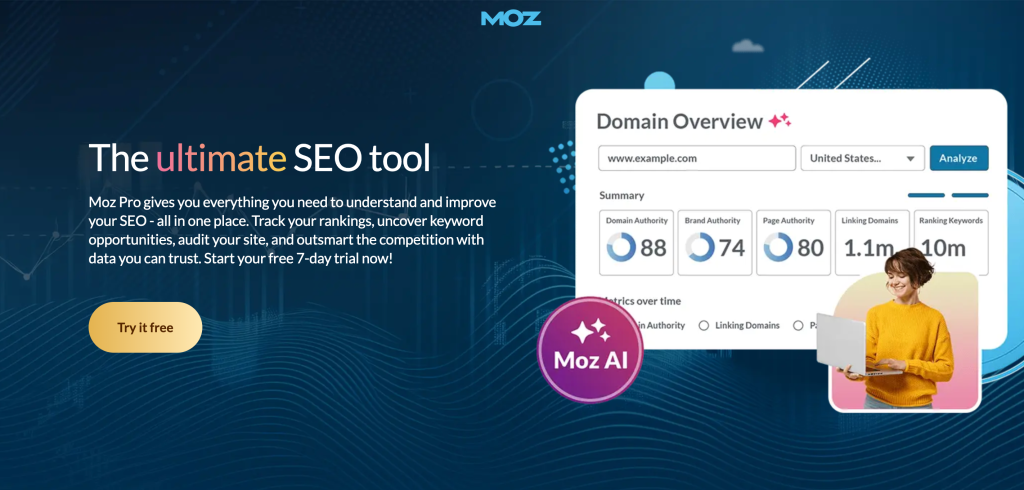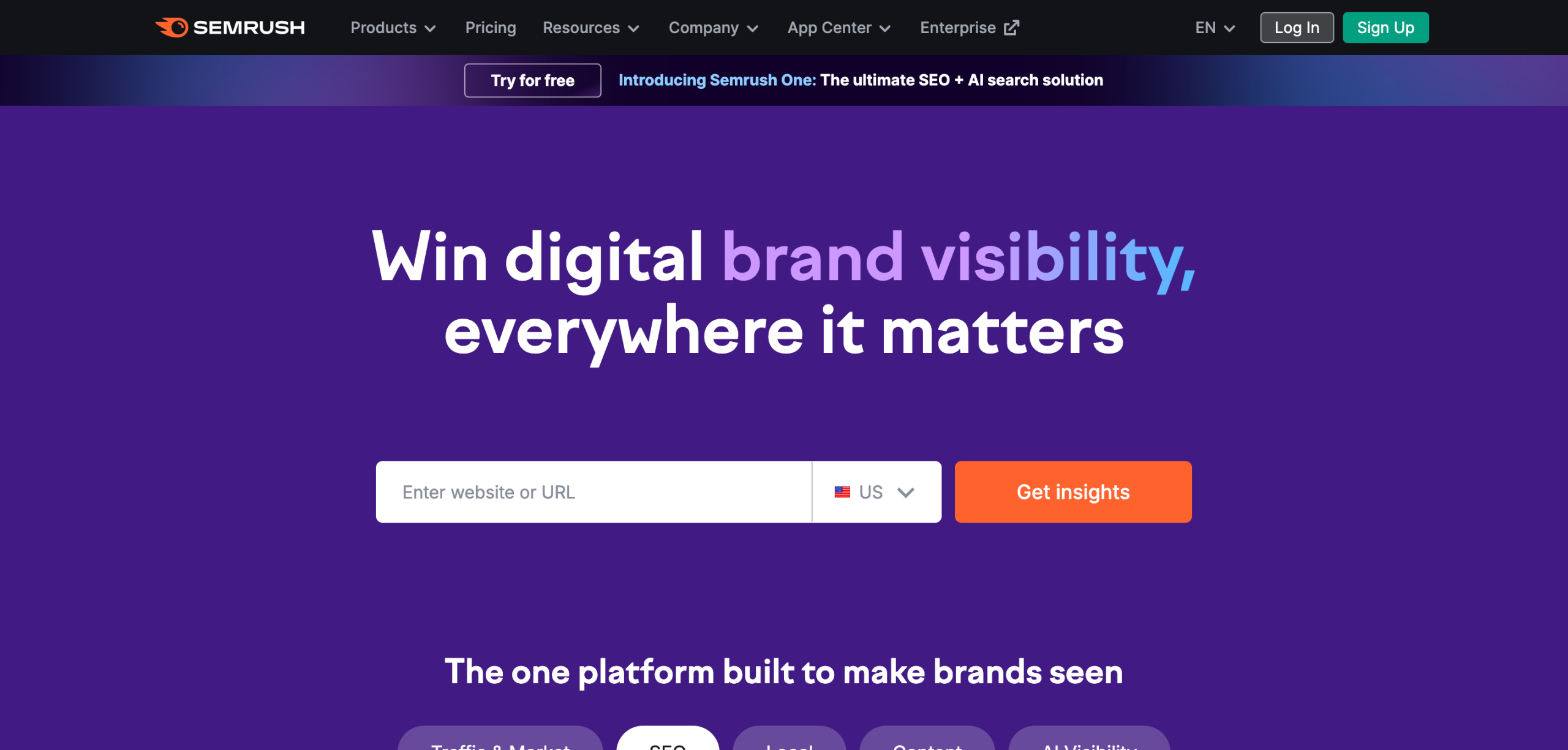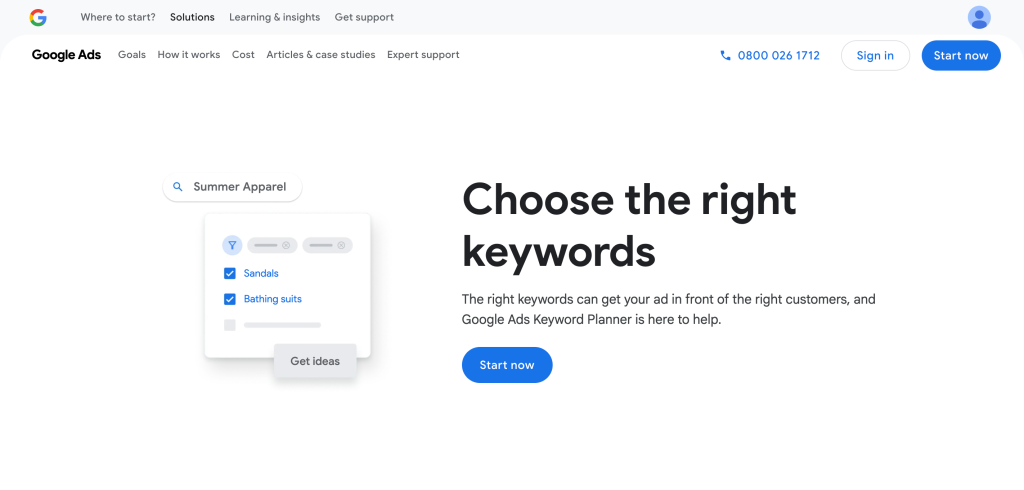In today’s competitive online landscape, having a strong SEO strategy is no longer optional; it’s essential. The right SEO platform not only helps you monitor your website’s performance but also uncovers opportunities to outsmart competitors and connect with your audience. Here’s a fresh look at some of the top SEO platforms that can elevate your digital presence.
1. Click Insights: Actionable Insights at Your Fingertips
Click Insights continues to lead the pack thanks to its ability to transform complex data into actionable SEO strategies. Beyond basic keyword tracking, it emphasises understanding user intent, helping businesses target terms that genuinely drive engagement.
What sets Click Insights apart is its focus on predictive analytics. Instead of just reporting current rankings, it forecasts trends, helping you stay ahead of the competition. It also integrates competitor monitoring seamlessly, giving you a clear view of opportunities and potential threats in your niche. For businesses looking for a proactive, insight-driven SEO solution, Click Insights is unmatched.
2. Moz: Simplifying SEO Without Sacrificing Depth

Moz remains a go-to platform for both beginners and seasoned marketers due to its blend of simplicity and powerful features. One often-overlooked benefit of Moz is its robust site crawl tool, which identifies hidden technical issues that could harm rankings, such as broken links or duplicate content.
Moz also stands out with its educational resources, making SEO approachable for teams that may not have a dedicated specialist. Features like keyword difficulty analysis and link tracking give marketers the confidence to build strategies that are both effective and sustainable.
3. SEMrush: Competitive Intelligence Meets Creativity

SEMrush is more than a traditional SEO tool; it’s a hub for digital intelligence. Its strength lies in providing a complete picture of your market, including competitor traffic sources, backlink profiles, and top-performing content.
One unique approach SEMrush offers is content gap analysis. This feature highlights topics your competitors rank for that you haven’t yet explored, giving you a roadmap to capture untapped traffic. Combined with its social media and PPC analytics, SEMrush enables a holistic digital marketing strategy, unifying organic and paid efforts.
4. Google Keyword Planner: Beyond Paid Search

While often associated with Google Ads, Google Keyword Planner offers incredible value for organic SEO as well. Its strength lies in data accuracy, sourced directly from the world’s largest search engine.
A fresh approach is to use Keyword Planner for discovering micro-trends, keywords that may be low in search volume but high in conversion potential. By targeting these niche terms, you can attract highly qualified traffic and stay ahead of broader trends that competitors might be slower to capitalise on.
5. Bing Webmaster Tools: Optimising for a Wider Audience
Though Google dominates, Bing still represents a significant segment of search users, often with unique behaviour patterns. Bing Webmaster Tools provides an often-underutilised advantage: insights into this audience and search engine nuances that differ from Google.
The platform also emphasises site health, offering tools for structured data, mobile optimisation, and security monitoring. Using Bing Webmaster Tools in tandem with other platforms can help businesses uncover overlooked opportunities and diversify traffic sources.
Conclusion
Selecting the right SEO platform isn’t just about tracking keywords; it’s about building a strategy that adapts to trends, uncovers opportunities, and strengthens your overall digital presence. Whether you lean on the predictive power of Click Insights, the approachable expertise of Moz, the market intelligence of SEMrush, or the niche insights from Google and Bing, there’s a platform suited to every SEO goal.


